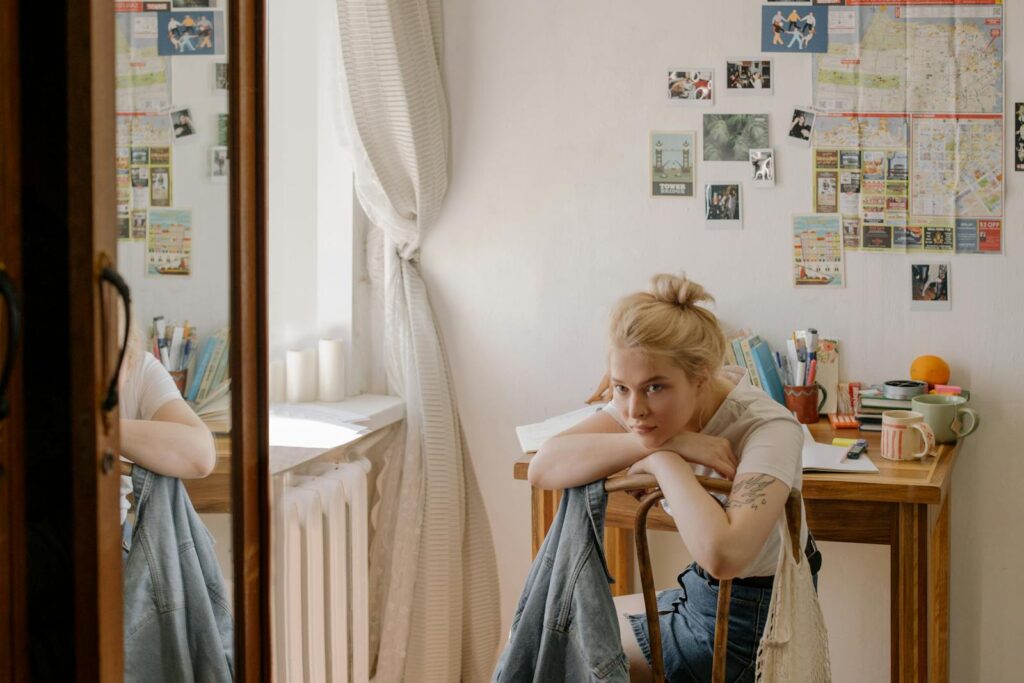Lifestyle
15 Reasons Some People Stay in Toxic Relationships

It’s easy to say, “Just leave,”—but walking away from a toxic relationship isn’t always that simple. People stay for reasons that go beyond love or habit. While the idea of staying with harmful people may look stupid or even reckless from the outside, it’s crucial to understand the ‘why’ behind their reasons. Here are 15 reasons why people stay in toxic relationships.
Fear of Being Alone

Being alone doesn’t just mean not having a partner—it can also mean facing your thoughts, insecurities, and deepest fears. For some people, that’s terrifying. Imagine coming home to silence every single day after years of chaos. As strange as it sounds, that chaos can feel more comforting than the unknown of solitude.
Hope They’ll Change

Ever heard someone say, “They weren’t always like this”? That’s the hook. People often hold onto the early days—the good moments—as proof that their partner can be better again. Spoiler alert: They will NOT get better. There’s no guarantee about it. It’s like waiting for a character in a movie to redeem themselves, even when all the signs scream otherwise.
Low Self-Esteem

Toxic relationships often go hand-in-hand with eroded self-worth. When someone is constantly criticized or belittled, they start believing the worst about themselves. It becomes a vicious cycle—”Maybe I deserve this” or “I’m not good enough for better.” The idea of leaving feels pointless when you don’t think you deserve more.
Emotional Dependency

Think of emotional dependency like being hooked on a roller coaster. The highs—those rare moments of affection—feel euphoric, making the lows more tolerable. People become addicted to the cycle, craving those brief moments of love and validation, even if they’re surrounded by pain most of the time.
Financial Dependence

It’s not just about money—it’s about survival. Picture this: someone hasn’t worked in years, has no savings, and relies entirely on their partner for housing, food, or even health insurance. Leaving doesn’t just mean emotional pain; it means “Where will I sleep tonight?” That level of vulnerability keeps many stuck.
Fear of Judgment

“What will my family think?” or “My friends will think I messed up.” Yep, that pressure is real. In some circles, breaking up feels like wearing a giant “I failed” sign on your forehead. The idea of being the hot topic at family dinners or the subject of side-eye and whispers from friends can be scarier than staying in an unhappy relationship. That fear of judgment often outweighs the simple need to just be happy.
Manipulation and Gaslighting

Gaslighting is like being stuck in a mental maze. You start second-guessing your own memories, feelings, and even reality. A toxic partner might say things like, “You’re overreacting” or “That never happened”—making you question if you’re the problem. Before you even know it, you’re doubting everything about yourself, wondering if you’re going crazy (you are most definitely not).
Children Involved

The classic line: “I’m staying for the kids.” It comes from a place of love but often causes more harm than good. Parents might believe that two parents under one roof are better than a split family. But kids are intuitive—they pick up on tension, fights, and sadness more than adults realize.
Normalizing Toxic Behavior

If someone grew up in a home where yelling, manipulation, or emotional neglect was common, they may not even recognize their relationship as toxic. It’s like being so used to a foul smell that you no longer notice it. That “normal” becomes a dangerous baseline for future relationships.
Fear of Retaliation

Leaving isn’t always as simple as packing your bags and walking out. Sometimes, toxic relationships cross the line into full-blown abusive territory, with threats like “If you leave me, you’ll regret it”—and they’re not just bluffing. The fear of getting hurt, being stalked, or having personal stuff exposed as blackmail makes leaving feel downright dangerous. And let’s be real—psychopaths aren’t just movie villains; they’re out there, and some hide behind charming smiles.
Societal and Cultural Pressure

As we said before, in certain cultures, the stigma around separation or divorce is heavy. The idea of being labeled as “damaged goods” or bringing shame to the family can trap someone in a toxic situation. For women especially, societal expectations often dictate that they endure hardship for the sake of family honor.
Denial

Denial’s like a safety blanket. People tell themselves, “It’s not that bad,” or “All couples fight, right?” because admitting the truth means facing heartbreak, loss, and a whole lot of scary unknowns. The what-ifs haunt them. So, they brush off all the bad stuff (like it never happened) and cling to the good moments—even if those moments are few and far between.
Shared History and Memories

All those years together? They stick like glue. Birthdays, trips, late-night talks, dumb inside jokes—those memories make it tough to walk away. Nostalgia kicks in hard, making you remember the good times and conveniently blurring out how bad things have actually gotten. But you have to remember the fights too. That’s only how you can move on.
Belief That Love Should Be Hard

Pop culture has sold us the idea that “real love” involves struggle—cue the romantic movies where couples fight, break up, and make grand gestures to reunite. This narrative makes people think that toxicity is just “passion” or a sign of deep love, leading them to tolerate harmful behaviors.
Fear of Starting Over

Starting over sounds great in theory—new place, new friends, fresh routines—but let’s be honest, it’s also super overwhelming (and scary too). After spending years with someone, the idea of rebuilding everything from scratch feels exhausting. Familiarity can feel safer than diving headfirst into the unknown. People think, “Do I really want to start all over again?”—and for many, the answer is no.

